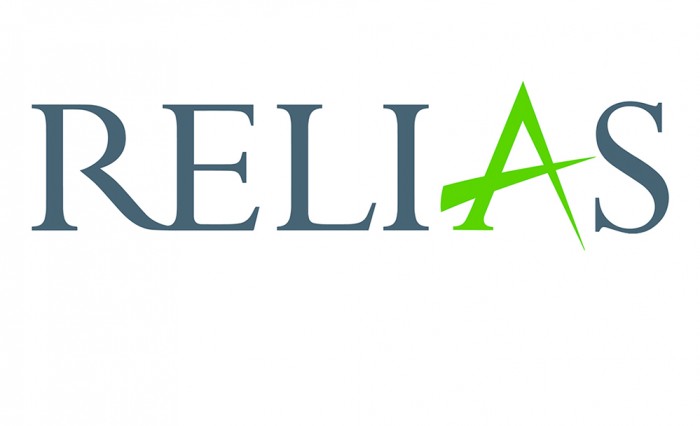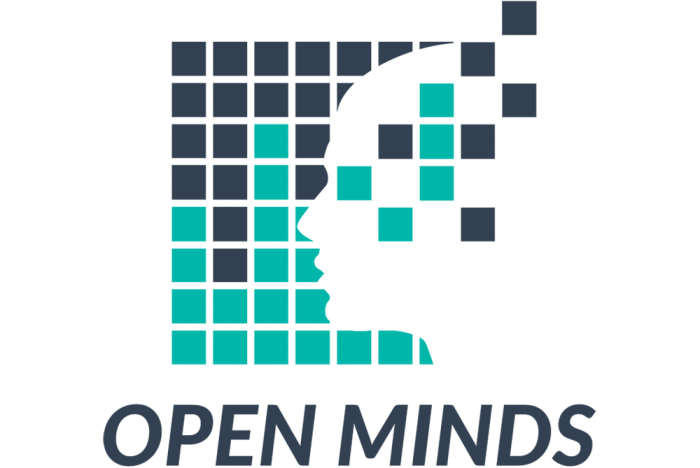behavioral health
Enhancing Access to Specialized Care: The Impact of the STAT Waiver Service and BH Services
Enhancing Access to Specialized Care: The Impact of the STAT Waiver Service and BH Services
Free Webinar for RCPA members
Tuesday, June 24, 2025
11:00 am – 12:00 pm
Register Here
This session will explore the impact of the STAT (Specialized Telehealth and Assessment Team) service in Pennsylvania, focusing on its role in improving access to care for individuals with intellectual and developmental disabilities (I/DD). Key data will highlight how STAT connects individuals to specialists trained to meet their unique needs and its positive impacts on both individuals and Direct Support Professionals (DSP).
A discussion with Barber National Institute will showcase how they use StationMD services for STAT and Behavioral Health support. The provider will share how StationMD enhances behavioral health care for individuals with I/DD, while offering valuable support to DSPs by providing timely guidance in complex situations.
Lastly, this session will emphasize how STAT and StationMD services complement each other to improve access to care and to enhance the quality of life for individuals with I/DD.
Presenters:
Matthew Kaufman, MD, FACEP, Chief Executive Officer, StationMD
Thad Jackman, Senior Director of Residential Services, Barber National Institute
Objectives: Following this course, the learner will:
- Describe the role of the STAT Waiver Service in providing individuals access to specialized clinicians 24/7 to meet their unique needs;
- Analyze the impact of StationMD Behavioral Health services in enhancing the timely delivery of expert support for their behavioral and developmental needs; and
- Discuss how the integration of STAT and StationMD Behavioral Health services collaboratively address barriers to care and improve the overall quality of life for individuals with I/DD.
Certificates of attendance are available to RCPA members who attend this webinar; anyone interested in a certificate should contact Cathy Barrick. To apply for CEs, you will need to register for the RCPA Annual Conference Strive to Thrive and indicate you attended the webinar in your CE packet, which will be made available on the mobile app.
Contact Carol Ferenz, Conference Coordinator, for details, or visit the RCPA Conference website for information on workshops, sponsors, exhibitors, and more!
Simplify Compliance and Empower Staff at a Discounted Price With Relias
OMHSAS Updates Behavioral Health MA Fee Schedule: Telehealth Group Psychotherapy Codes Added
Last year, RCPA met with its provider members regarding the provision of group psychotherapy services via telehealth in the client’s home. RCPA then met with the Office of Mental Health and Substance Abuse Services (OMHSAS) to discuss the possibility of allowing this flexibility in an effort to fully realize the use of telehealth technology to enhance access.
Today, the Department of Human Services’ Medical Assistance (MA) Bulletin #99-25-02 outlines revisions to the MA fee schedule. The following changes are specific to behavioral services and are effective May 1, 2025:
- Procedure code 99452 (Interprofessional Services) is now open for provider type (PT)/Specialty combination 08/184 (Outpatient Drug and Alcohol).
- Place of Service (POS) 10 — Telehealth Provided in Patient’s Home is now available to use with the procedure code 90853 (group psychotherapy) for PT/Specialty combination 08/110 (Psychiatric Outpatient).
Please see the section titled “Behavioral Health Services” on page 6 of the bulletin for additional information related to these revisions.
If you have questions about these changes, please reach out to OMHSAS electronically or RCPA COO and Policy Director Jim Sharp.
OPEN MINDS: Rewriting Recovery
Article reprinted with permission from OPEN MINDS. To sign up for a free OPEN MINDS news feed on https://www.openminds.com/market-intelligence/, go to https://www.openminds.com/membership/
Tarrytown Expocare Pharmacy 2025 Symposium Series on Navigating Diagnoses and New Therapies in IDD and BH on May 13
Approval Antics: Navigating the Drug Maze of IDD & BH — Tarrytown Expocare Pharmacy Webinar on April 10
NatCon25 Early Bird Rates End Today, March 10!
Congress’s Plans to Cut Medicaid Spending: Where We Are, What It Means
The Republican-controlled U.S. House adopted a federal budget resolution last week that instructs the House Energy and Commerce Committee, which has jurisdiction over Medicaid, to identify at least $800 billion in mandatory spending cuts during the next 10 years. The resolution is now in the GOP-controlled U.S. Senate.
Medicaid, which is jointly funded by states and the federal government through a federal matching program with no cap, is seen as a prime target for cuts, as it is one of the largest federal programs at a cost of more than $600 billion a year. Approximately 70 million people in the United States receive Medicaid benefits, with about 3 million — including 1.2 million children — of those in Pennsylvania. While officially the federal government did not name Medicaid as the target, there are virtually no other areas to turn to in order to generate such spending cuts.
Proposals being considered in Congress to cut Medicaid are estimated to cost Pennsylvania as much as $2 billion a year. These cuts will inevitably result in:
- Fewer insured Pennsylvanians;
- Fewer covered services for those who remain insured;
- Lower reimbursement rates paid to providers;
- Increases in uncompensated care; and
- Higher healthcare costs for those who are insured.
In addition to broad, negative consequences, each segment of the human services sector will be affected.
Behavioral Health
Medicaid is the largest payer of behavioral healthcare services in the United States, where nearly 40 percent of non-elderly adult Medicaid beneficiaries have a mental health or substance use disorder. Additionally, Medicaid is an essential revenue source for behavioral healthcare organizations. With the potential of fewer covered individuals and lower reimbursement rates, access will be squeezed, with existing providers less incentivized to accept Medicaid patients.
These potential cuts come on the heels of a compromised post-public health emergency unwinding of Medicaid, in which Pennsylvania’s actuarial analysis for the behavioral health capitation was severely underestimated. The eventual Medicaid rolls included more individuals with acute and chronic conditions, resulting in higher levels of care and services. Despite mid-year adjustments to the HealthChoices’s primary contractors, Pennsylvania will start the new fiscal year with the need to increase its BH Medicaid capitation by nearly $640 million.
Intellectual and Developmental Disabilities
Medicaid is the primary funding source for IDD services. If the proposed multi-billion dollar funding cuts occur, Pennsylvania’s intellectual disability system will face serious consequences, including service reductions, longer waitlists, and limited access to essential care. Providers already under strain may have to discharge individuals from community-based services, potentially returning them to institutional settings and undoing decades of progress towards independence and inclusion.
Pediatric Rehabilitation
Medicaid is a key funding source for healthcare and rehabilitation services for infants, children, and adolescents living with disabilities and medical complexity. Even for families with a private primary insurance, Medicaid as a secondary insurance fills in the gaps in covered care. Children with disabilities, regardless of household income, are Medicaid eligible to offset the high costs of care. Medicaid cuts will negatively impact the most vulnerable in our state: children with disabilities and special health needs.
Early Intervention
Medicaid is a supplemental funding source for Early Intervention services in Pennsylvania. All Pennsylvanian families currently enjoy access to these crucial home- and community-based services with no cost-share. Cuts in funding to this program may cause tighter eligibility requirements or cost-shares for families, ultimately decreasing access to essential services.
How the Cuts Might Be Done
Work Requirements
At this point, work requirements appear to be one of the most likely paths to Medicaid cuts.
According to the Pennsylvania Health Access Network (PHAN), approximately 1 million adults in Pennsylvania would be subject to the work requirement.
Medicaid work requirements would require certain Medicaid enrollees to work, look for work, or conduct another qualifying activity (e.g., education, caretaking) as a condition of receiving health insurance. As part of such a requirement, all working age Medicaid enrollees may be required on a monthly basis to report their work or verify their eligibility for an exemption because they are in school or a job training program, caring for others, or disabled/in treatment. Failure to do so would result in them losing Medicaid coverage.
On the surface, increasing support for work requirements is understandable. Able-bodied citizens on Medicaid who can work, should work. What is not being discussed is the fact that most of these individuals are already working but at an income that still qualifies them for Medicaid. Further, studies from states that have attempted to implement a Medicaid work requirement show that the cost to the state to implement and administer such a requirement is in the tens of millions of dollars.
If work requirements become a reality, advocates must lobby for waivers for special populations.
Federal Medical Assistance Percentage (FMAP)
At this point, according to Speaker of the U.S. House Mike Johnson, FMAP (as well as per-capita caps, see below) are not a consideration for reducing Medicaid spending.
Each state’s FMAP determines its federal share of Medicaid funding. FMAP is a formula that uses the state’s most recent three-year average per capita income data to provide higher matching rates to states with lower per capita incomes relative to the national average. FMAPs have a statutory minimum of 50 percent and a maximum of 83 percent.
In Pennsylvania, 56 percent of Medicaid costs are paid with federal dollars, leaving Pennsylvania to cover the balance.
Under the Affordable Care Act’s Medicaid Expansion, the FMAP for what became the newly eligible population — mostly low wage workers who do not have coverage through an employer, disabled workers, caregivers to children or elderly family members, and students — is fixed at 90 percent federal funding, with the commonwealth paying for the balance.
Per Capita Caps
A per capita cap funding arrangement sets an upper limit on federal payments per Medicaid enrollee in each eligibility group. In an aggregated cap (also called a capped allotment) approach, states receive federal matching funds up to a determined maximum. If the cap is exceeded, the state bears 100 percent of that cost with no federal match.
Resources
There are many resources continually being developed and distributed. These include ways to take immediate action with Congress. The following are some of the most relevant to our membership.
- ANCOR Action Alert
- Kaiser Family Foundation Pennsylvania Medicaid Fact Sheet
- Legal Action Center/Coalition for Whole Health Protect Medicaid Report
- National Association for Behavioral Healthcare: Medicaid Policy Proposals Analysis
- National Council for Mental Wellbeing Take Action
- Pennsylvania Health Access Network Medicaid Resource, Including Congressional District Fact Sheets
Next Steps
RCPA will continue to closely monitor the issue. As Congress’s next steps become clearer, we will work with our partners, including you, to develop and execute strategies to stop Medicaid cuts or minimize the negative effects.
Contact your respective RCPA Policy Director with questions.
PCHC to Host “An Intro to ID/A Spectrum Disorders and Co-Occurring MH Conditions” Webinar April 2
Date: April 2, 2025
Time: 10:00 am – 11:30 am
Register Here
It has been said that if you meet one person with autism, you’ve met ONE person with autism. This means that autism looks unique in each individual. It is also important to understand that autism frequently coexists with intellectual disabilities and/or mental health diagnoses.
In this training, PCHC will:
- Increase the general knowledge about intellectual disabilities, autism spectrum disorder, and co-occurring mental health challenges;
- Understand how mental health challenges may present in individuals with intellectual disabilities or autism spectrum disorders; and
- Discuss common barriers and resources to treatment.
PCHC’s hope is that, with this information, you will be able to better understand and serve this complex group of wonderful people.
















